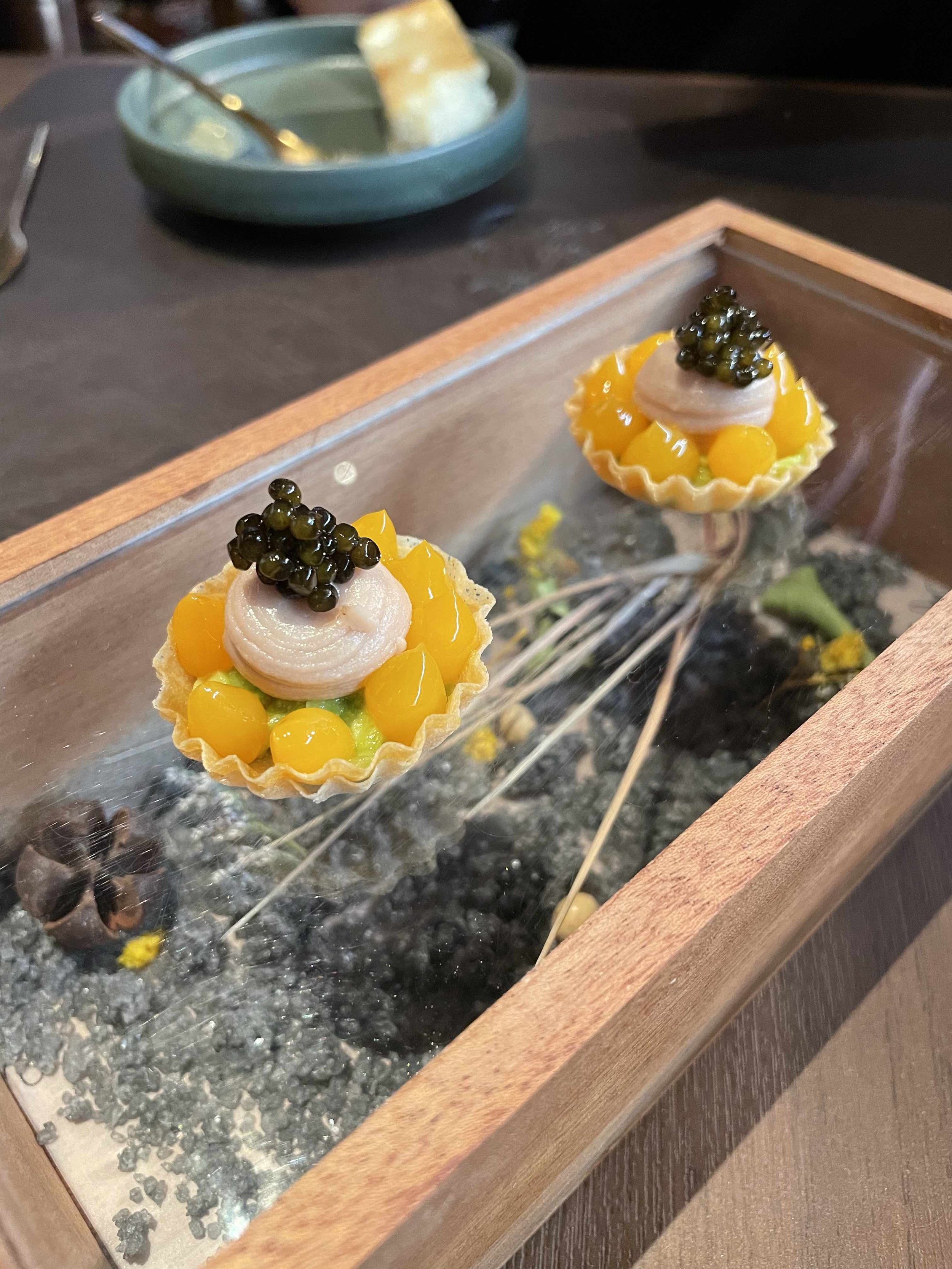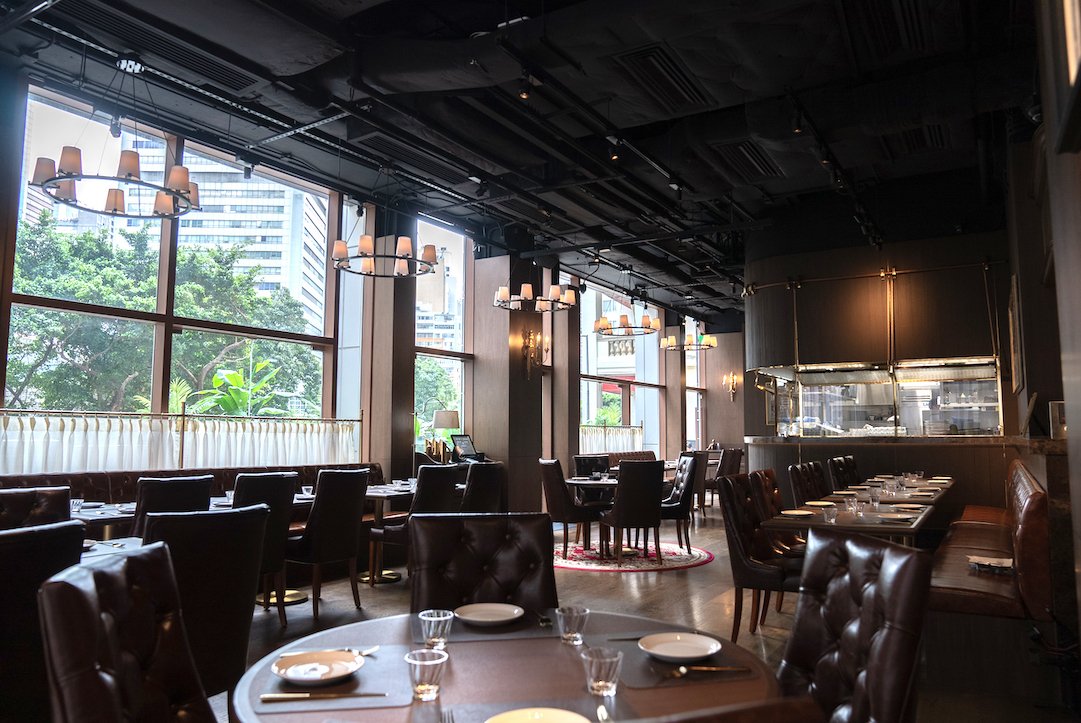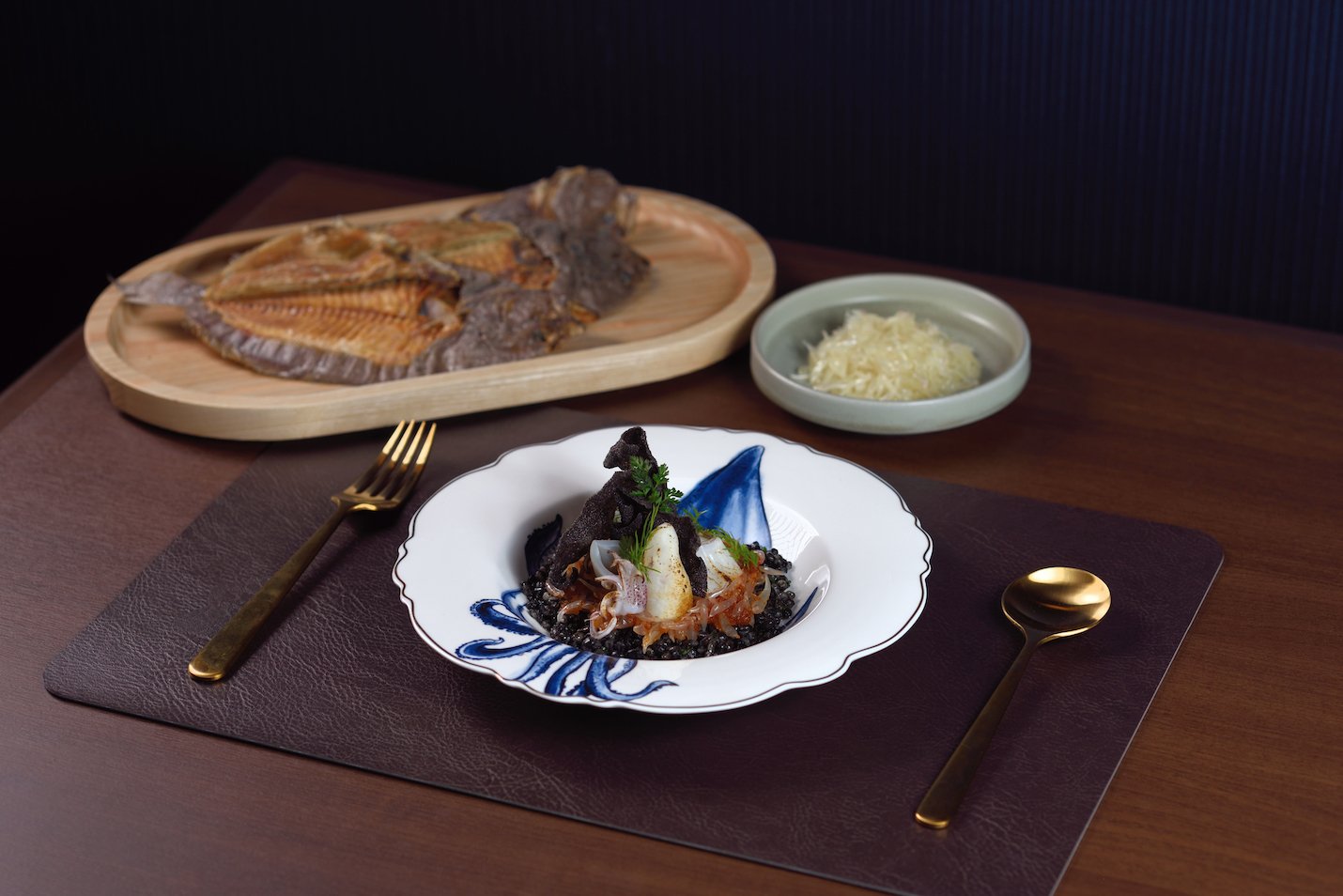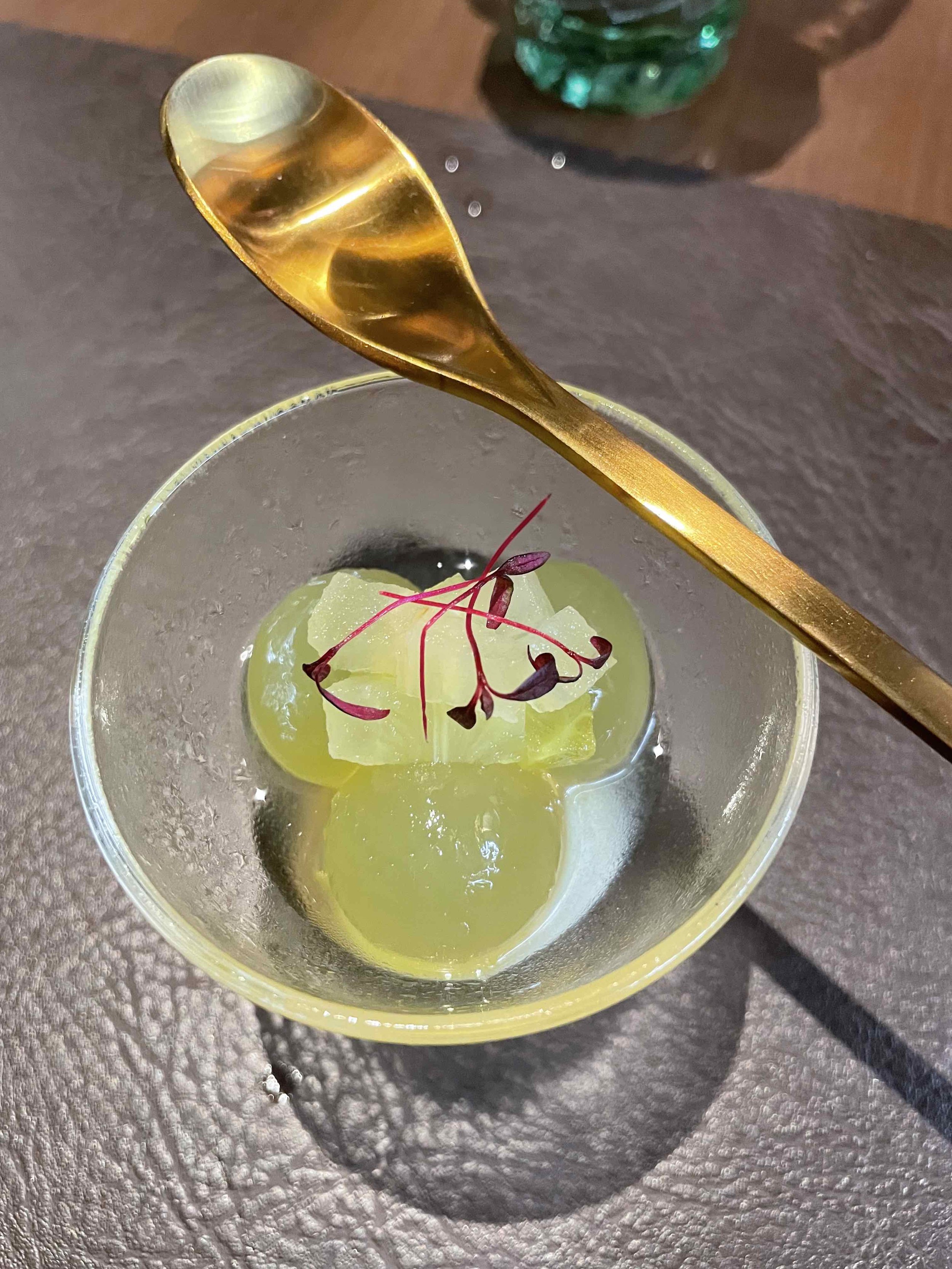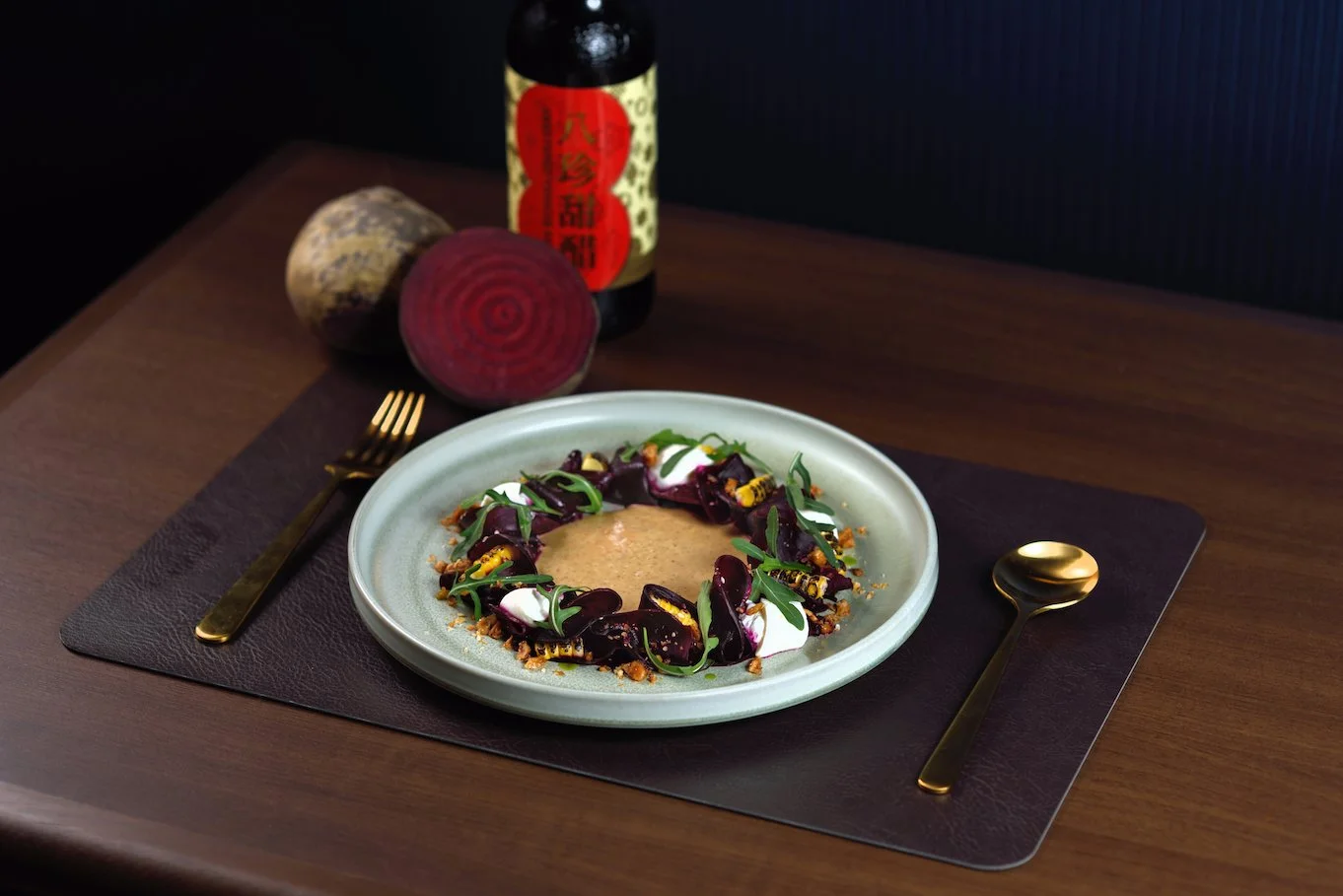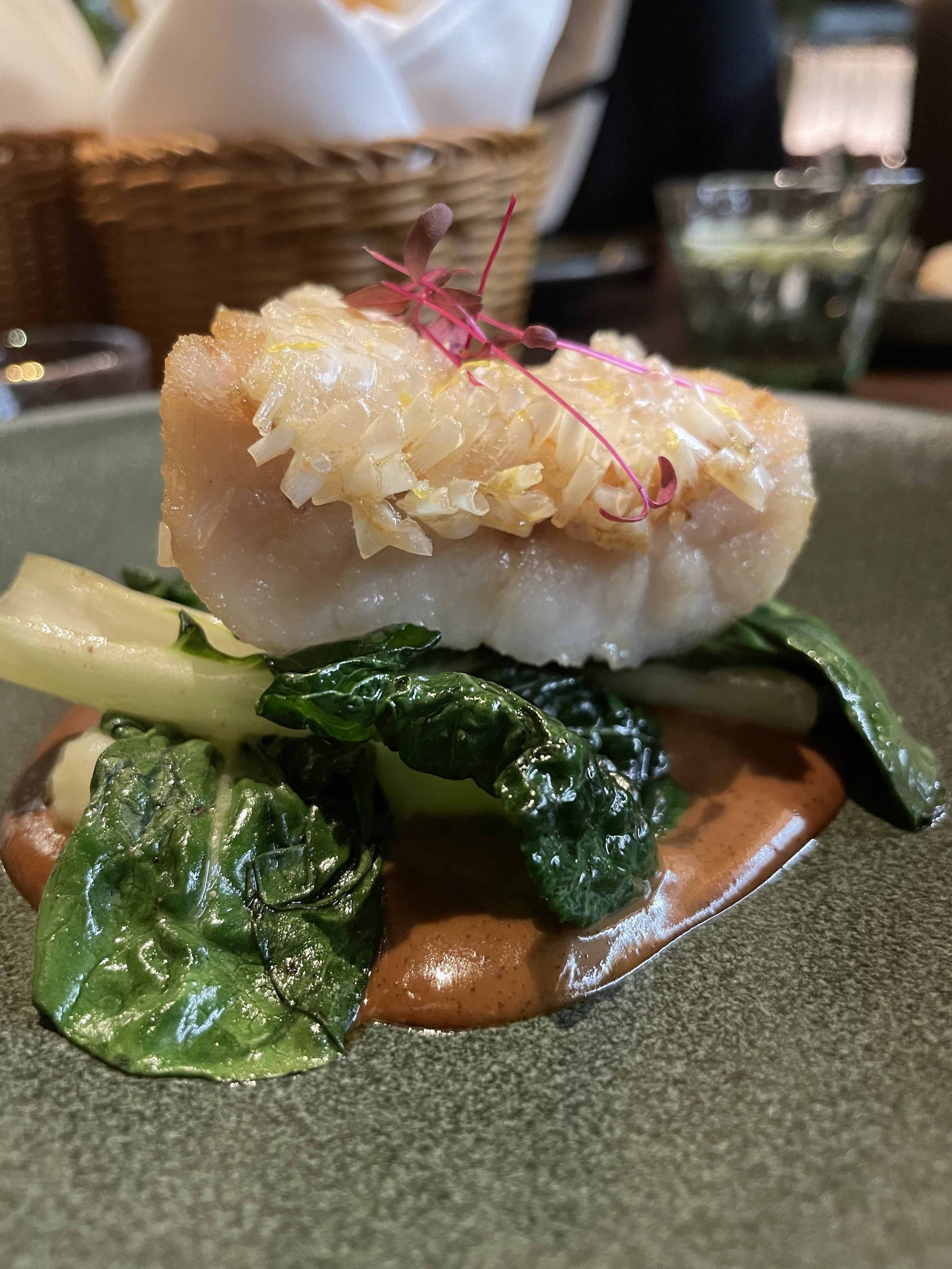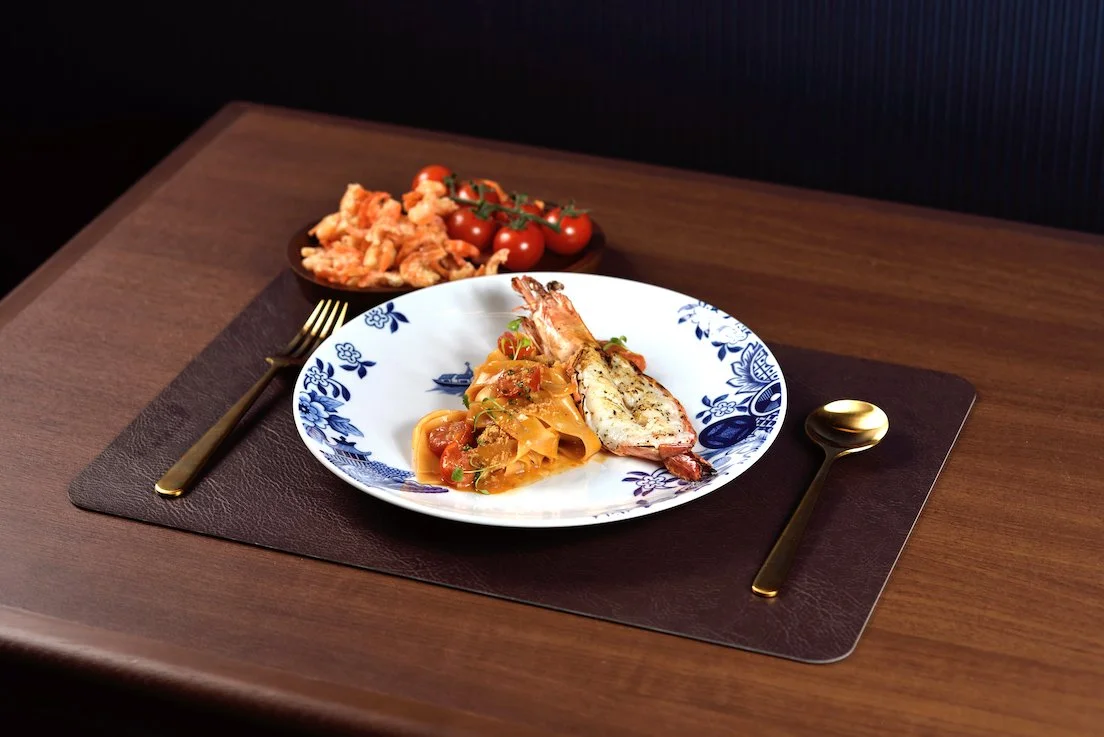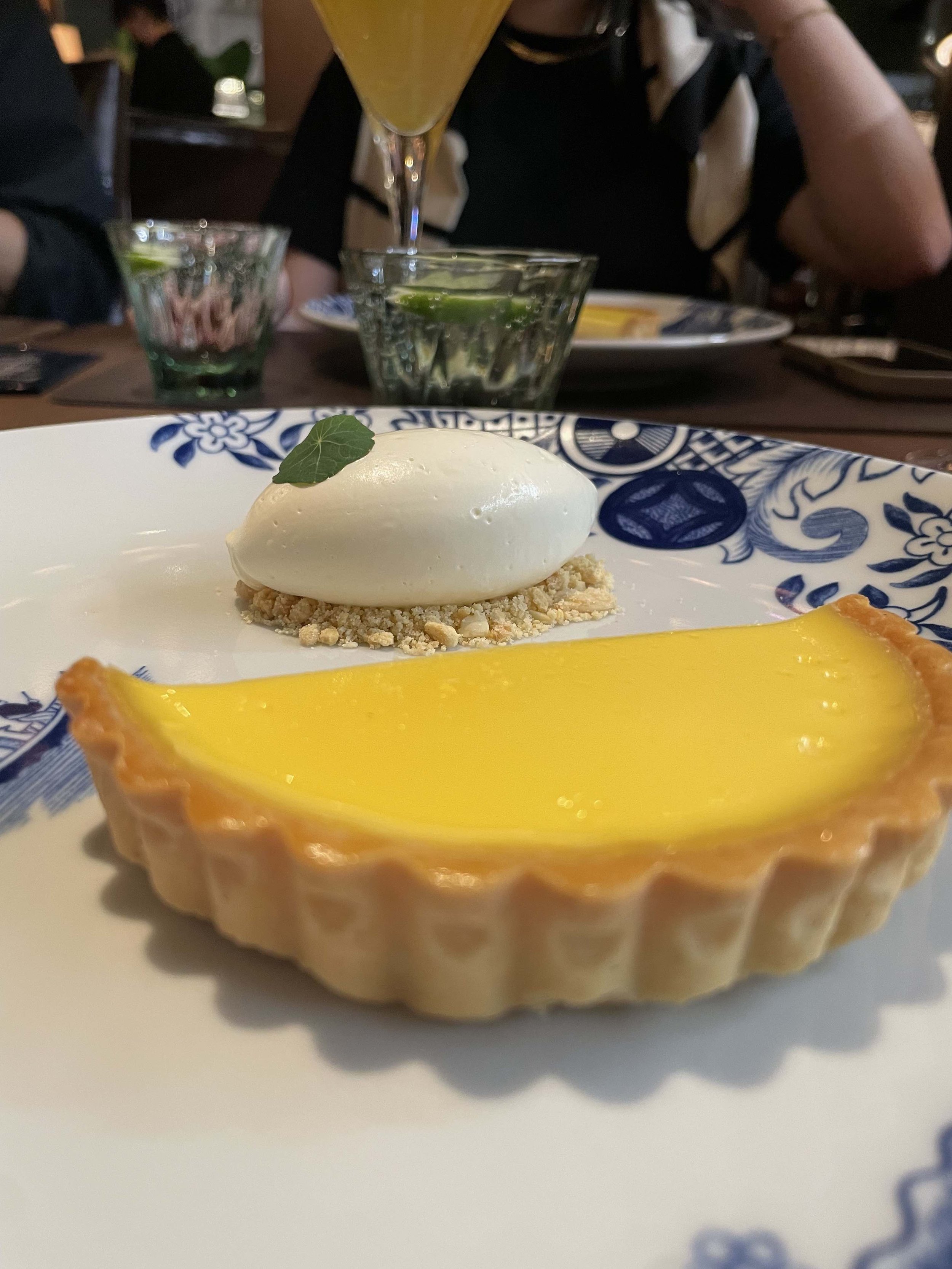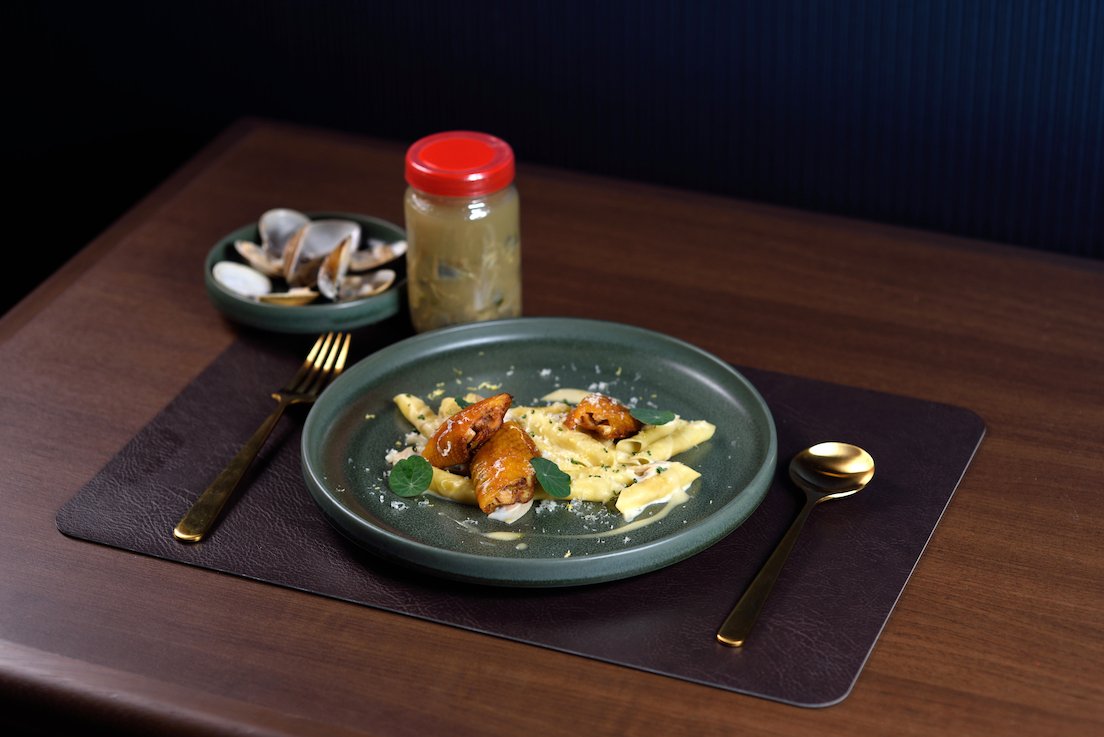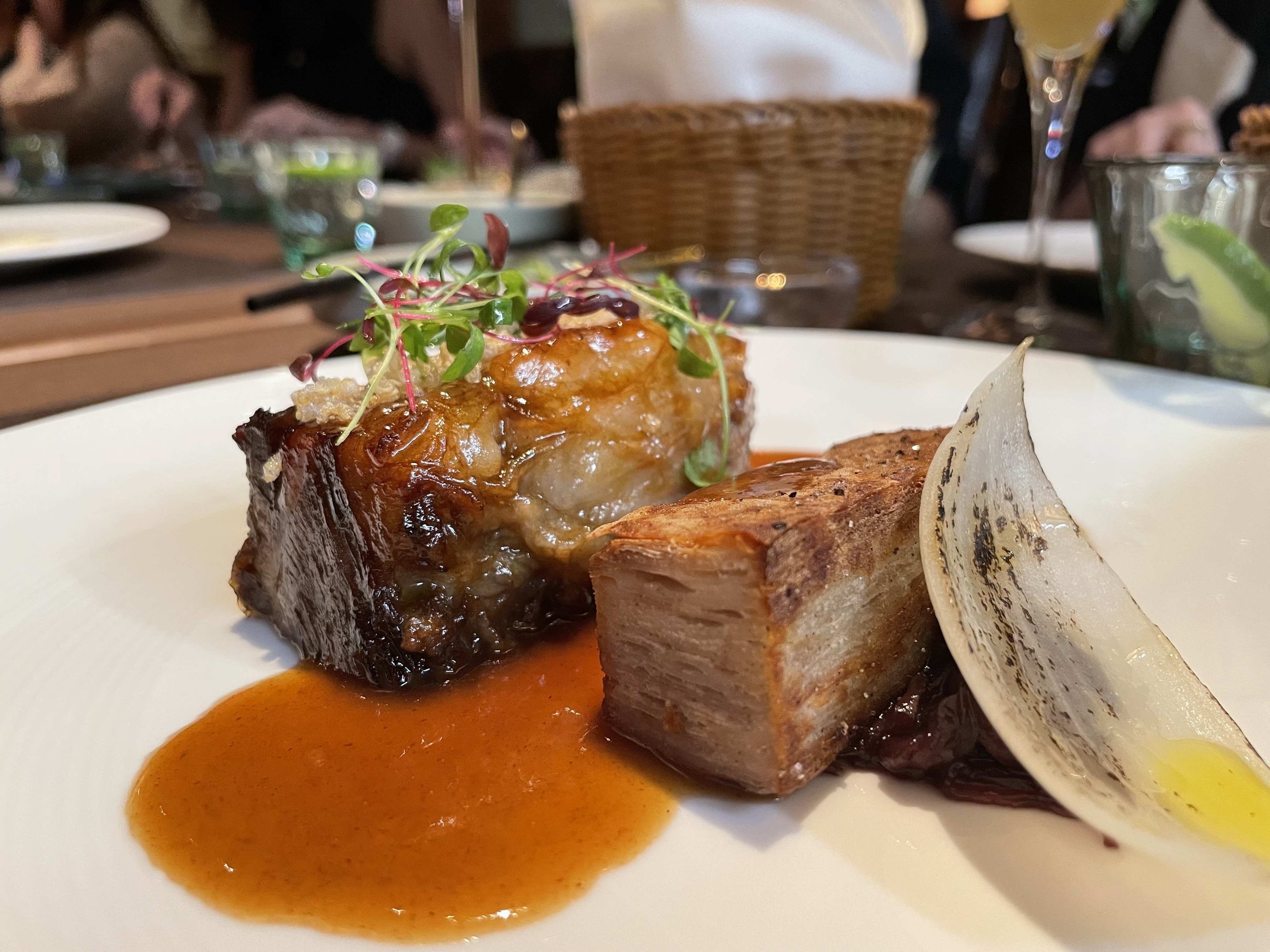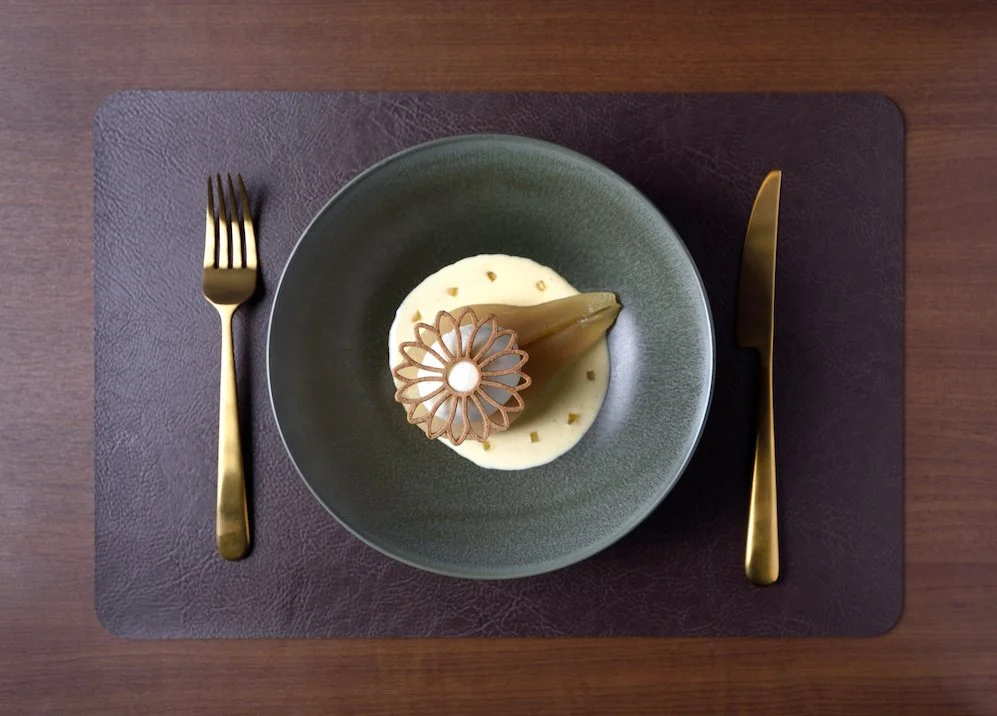A Wee Devil
enjoy Bo Innovation, but it’s a bit too rich for your blood? maybe try celebrity chef Alvin Leung’s slightly more accessible Cafe Bau.
Okay, we’ll admit it. When someone says “farm-to-table” dining most times we envision someplace in the middle of France or Australia, where farms are visible in the distance if you get just a little ways out of the city, and large swathes of the land are dotted with various crops. When it comes to putting “farm-to-table” and “Hong Kong” in the same sentence, maybe – maybe – we think of a friend with a tiny rooftop garden handing over a handful of cherry tomatoes and a clump of basil. Bon appétit. There are no farms for the tables here.
Wrong! At least wrong according to celebrity chef Alvin Leung, who opened Cafe Bau in March in the space that used to be his two Michelin-starred Bo Innovation (now in Central). The idea is to offer farm-to-table dining that features local Hong Kong agriculture and also keeps that carbon footprint down. That’s one of two prongs coming at you at Bau, the second being the localism wave that has swept the city in recent years; the increased appreciation for heritage, unique culture and homegrown talent. To that end Cafe Bau really leans into the Hongkongness where possible, by serving not just seafood (duh), but by putting a modern, “cool” spin on grub like street waffles and egg tarts. Cafe Bau’s ingredients include honey from Lam Tsuen, chicken from Ping Yuen, pork from Yuen Long, rice form Yi O (on Lantau), oysters from Lau Fau Shan, fruits and vegetables from small farms in the New Territories and local products from Pat Chun, Kowloon Soy and Luen Kee Ho. Maybe there are some farms here after all.
In late March, shortly after Bau opened – it sits somewhere between a chic bistro and fine dining – we were offered the eight-course tasting menu for $998. The sampler has many of what seem poised to be Bau staples, with the standouts among them being the beetroot salad with Pat Chun vinaigrette, the hand-cut penne with yellow chicken wings, a lobster bisque (served in an espresso cup), and the slow-cooked oxen brisket with a red wine shallot sauce. The thinly sliced (local) beets were as dirty-smelling – sorry, earthy – as they should have been and had a vivid purple colour to go with the strong beety flavour. The vinaigrette added an interesting, fragrant touch and tangy finish. The penne had a good texture (tons of restaurants enjoy overcooking pastas) but it was the tender, boneless (!) chicken wings that won the day. The dish is technically “cacio e Pepe” (cheese and pepper) which some of us found not peppery enough. It was. It tasted of pepper; it didn’t taste solely of pepper. The beef could be spooned into your mouth it was so tender, and was served with a side of taro as a nice alternative to mash. None of this is particularly Hong Kong-y (maybe with the exception of the taro), so it’s up to the fish, seafood and desserts to pick up the slack. The catch of the day was flaky and not overpowered by the Yangjiang black bean vinaigrette, but it was the grilled squid with spicy shatian pomelo, flounder smoked barley and squid ink chips that divided the table. Too much chewy barley for some, just right for others. It’s an undeniably tasty dish and it will be hit-and-miss. Bottom line: how much do you like barley? A late-service cleanser of salty lemon and papaya sorbet will have you wanting a 7 Up to plop it in. We mean that in a good way.
Bo Innovation isn’t for everyone (me, for example), and so to its credit some of the worst instincts of that restaurant don’t carry over to Cafe Bau; it’s more accessible and you feel full after dinner. It’s considerably less outré, and if you’re looking for that kind of food lunacy, go back to Bo. If the tasting menu is too much work, for the foreseeable future Bau is also offering up a three-course menu for $650 (appetiser, main, dessert) from what is likely to be the à la carte menu when the restaurant is going full tilt; it’s only open for dinner at the moment.
This is a night of eating, and no swish evening out would be complete without some fancy drinks, and Bau has a quartet of custom cocktails to choose from. At the top of the list is the $238 Eternal Fortune and Flame. Relax, the concoction of Wing Le Wai Rose Dew Wine, grapefruit, slow-cooked tequila and Tai Wai Beer is meant to be shared. The odd combination of hoppy, acidic and citrusy will be an acquired taste, but it is a palate-cleansing shot that goes with more than a few of the food items. The Bao Martini and the Thai Collins (both $128) are the most refreshing choices: sweet without being sugary and vaguely herbaceous. If cocktails aren’t your thing, there’s a small European-heavy wine list (bottles range from $418 to $1,100 for a 2014 Margaux). Of course, you can always smash a, duh, Tai Wai Beer ($80 for the Earl Grey Amber Ale or the Jasmine & Passion Fruit Wheat). If one thing about Bau clangs it’s the music. Whoever thought ’80s power ballads – glorious as Journey and Heart may be – were the right soundtrack for this restaurant might be barking up the wrong tree. Cantonese power ballads, on the other hand, might be quite another story…
Cafe Bau
Address: Shop 8, Podium 1/F, J Residence, 60 Johnston Road, Wan Chai
Wan Chai MTR Exit A3; Tram stop Luard Road/Swatow Street
Telephone: 2126 7212
Worth going back?: Perhaps, if you’re a fan and you want to check out the new/next menu

